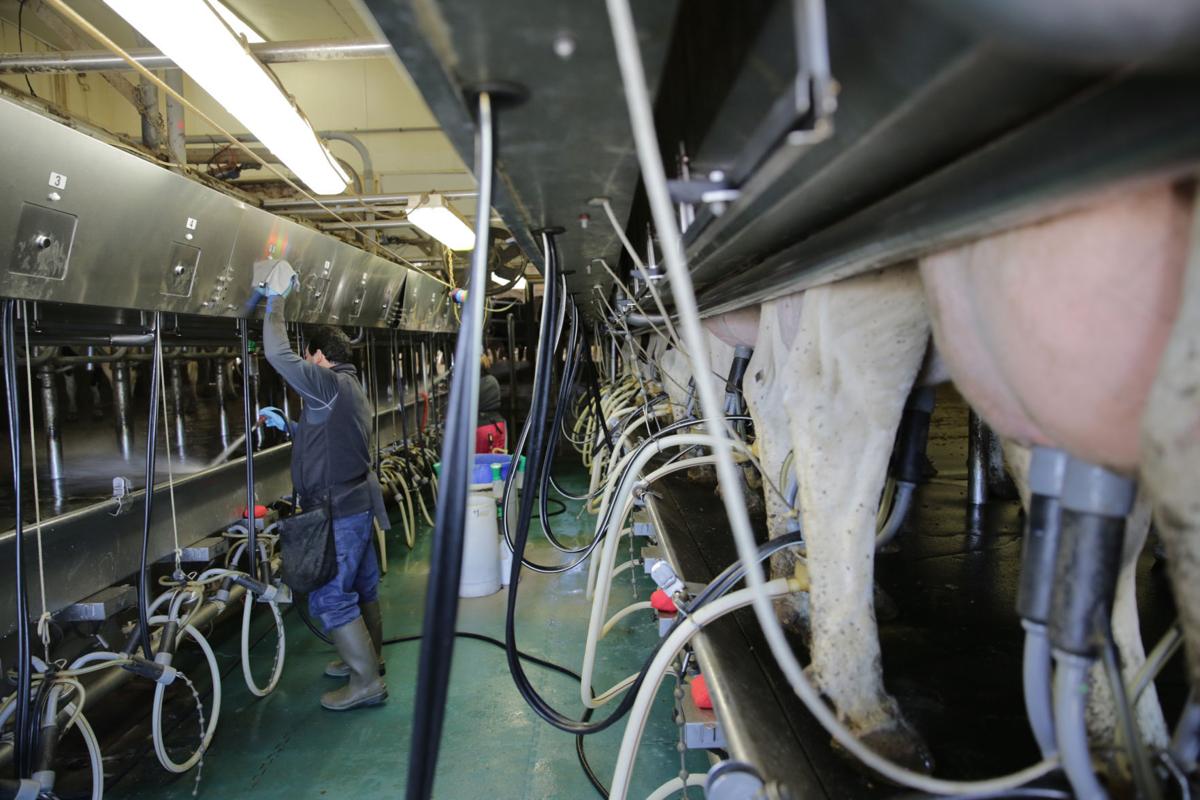 At a dairy farm in northwest Illinois, Esteban works the land the way his father taught him in his native Michoacan, Mexico. Every day before the sun rises, Esteban, who prefers not to give his last name because of his immigration status, feeds about 1,200 cows, regardless of rain, snow or hail. He has been working on the same farm for almost 17 years, he said.
At a dairy farm in northwest Illinois, Esteban works the land the way his father taught him in his native Michoacan, Mexico. Every day before the sun rises, Esteban, who prefers not to give his last name because of his immigration status, feeds about 1,200 cows, regardless of rain, snow or hail. He has been working on the same farm for almost 17 years, he said.
“I feel like they are like family and real friends because they all treat us, the workers, like friends,” Esteban said, referring to his boss and his family. “They truly care for us and watch out for us,” he added in Spanish.
His job earns Esteban “enough” to feed his five children and support his parents in Mexico, he said.
But since President Donald Trump’s election, Esteban has been nervous at work. He and 17 immigrant co-workers, all Mexicans, he said, fear Immigration and Customs Enforcement (ICE) raids, which could lead to the deportation of immigrants in the U.S. illegally.
“We can leave our homes and may not come back to see our children again if we get deported or if the police arrest us,” Esteban said.
Although there have been no reports of raids in the area, farm owners share their employees’ concern.
Esteban’s boss, David, who also prefers to keep his identity confidential, said he fears losing “an extraordinarily good employee” who helped to grow his milking operation to about twice the size it was 20 years ago.
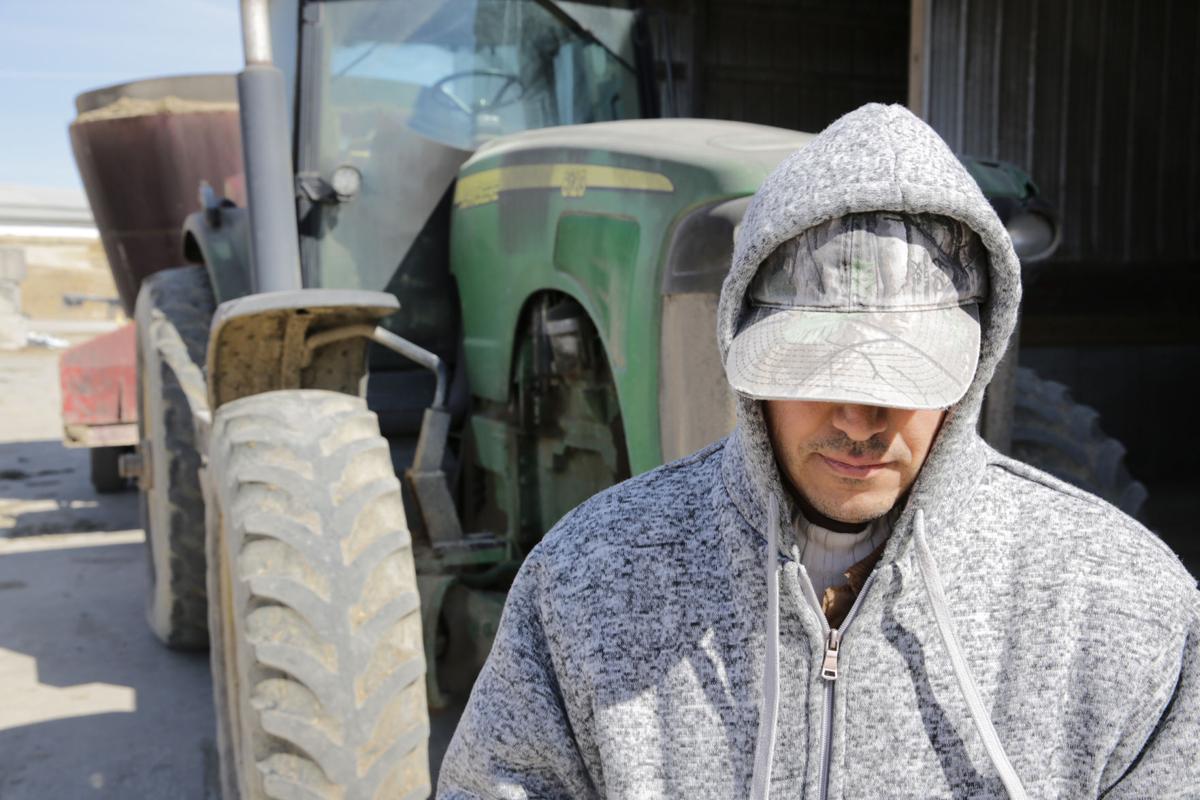 For that reason, David’s farm manager helped reorganize evening shifts on Feb. 22 so Esteban and his co-workers could attend an immigration “Know Your Rights” workshop — the first of its kind in a rural county where Trump beat Hillary Clinton by over 15 percentage points.
For that reason, David’s farm manager helped reorganize evening shifts on Feb. 22 so Esteban and his co-workers could attend an immigration “Know Your Rights” workshop — the first of its kind in a rural county where Trump beat Hillary Clinton by over 15 percentage points.
“They feel that they wouldn’t have the life they have without us, and we certainly cannot survive without them, so that’s part of what I call a family,” David said about his immigrant workforce.
The 25 or so Latino families that gathered at the rundown St. Mary Parish Center in Freeport, Illinois, learned how to differentiate between local, state and federal law enforcement and immigration officials.
Their children helped to read information printed in English, and listened gravely as a representative from the League of United Latin American Citizens, a Latino civil rights organization, explained what to do if an ICE agent knocks on their door.
Many attendees said they were sent by their employers, who, like David, depend on immigrant labor, documented or undocumented, to produce cheese, milk and poultry in the region.
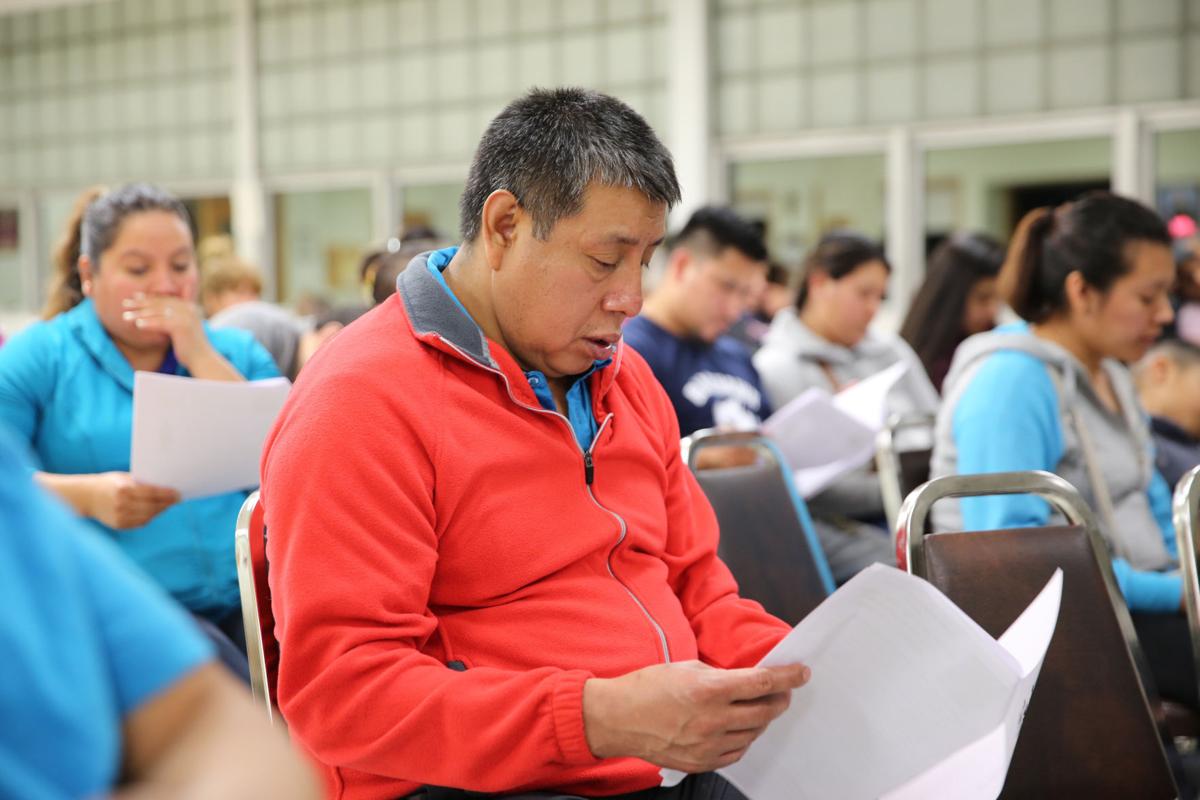 “Immigrant labor in all the larger dairy operations is an absolute must. There is no way we would be able to survive in business without immigrant labor,” David said. “I’m hoping the administration is smart enough to know there are several facets of the economy of this country that will not survive.”
“Immigrant labor in all the larger dairy operations is an absolute must. There is no way we would be able to survive in business without immigrant labor,” David said. “I’m hoping the administration is smart enough to know there are several facets of the economy of this country that will not survive.”
The Hispanic community in the area is small but growing, according to the Rev. Diego Ospina, the priest of the parish, whose church is the only one in the area that offers Mass in Spanish.
According to Father Ospina, families’ fear and uncertainty have become evident over the past few months, with some choosing to remain inside their homes in case there are raids in the area, he said. “People here really have no information about what’s going on or on how to protect themselves,” he added.
The priest said Latino community organizations have no presence in the area, and he could not identify any safe spaces providing assistance for those living in the country illegally besides his church.
Julieta Galicia, a mother of three who has lived in Freeport for almost 19 years, organized the workshop and called on her fellow immigrant families to attend.
“We tend to think that it (immigration enforcement) is not going to happen to us. That was the case for me eight years ago,” Galicia told the crowd.
Now protected under President Barack Obama’s Deferred Action for Childhood Arrivals program, Galicia was pulled over in 2008 after swerving to avoid an animal on the road. The officer reported her to immigration enforcement officials, she said, and she was put in deportation proceedings.
Galicia fought the order in court for years, just recently achieving its cancellation, she explained.
“In this area, there is no public transportation, so everyone has to drive to work and to take our children to school, so we are all at risk,” Galicia said. “With this new president, we all are criminals, like he has stated before.”
Galicia said she has never felt much racism in the area. On the contrary, the owners of the farms “are willing to make a change,” for their employees, she said.
David has contemplated trying to find housing close to his operation, so employees don’t have to drive as far to get to work. He said he has also written letters to people in power to bring attention to immigrants’ essential role in the dairy industry, and the difficulties that current immigration policy cause him.
“The immigrant labor needs to hear us be proactive to know that they do have our support, and that has been a question for many of my employees,” David said. He voted for Trump, whom he considered the fiscal candidate and best choice for his business, but said he “absolutely” supports an immigration reform that would make it easier for his industry to contract properly authorized workers.
David has made frequent efforts to attract American citizens to his farm, where wages start at $11 an hour, but he has struggled to find “dependable, skilled laborers,” he said.
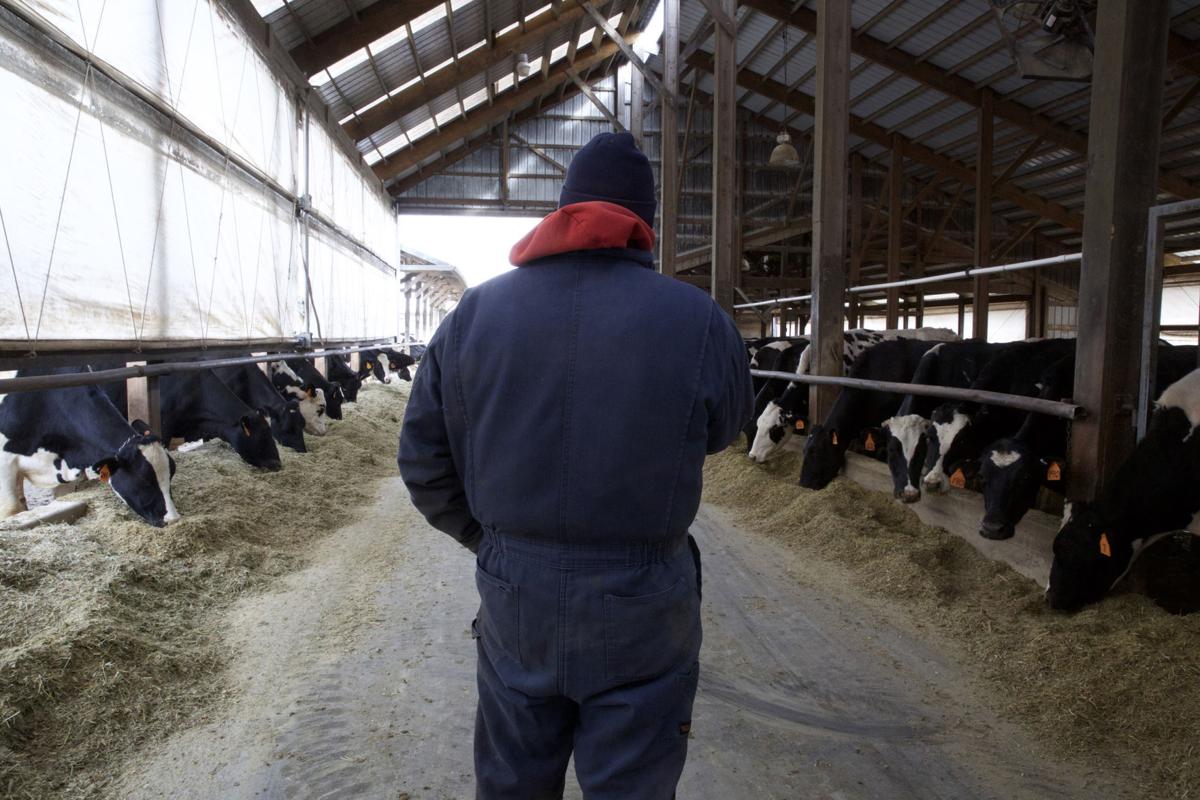 “I think the biggest misconception in the political field is that the immigrant labor force is taking away jobs from U.S. citizens,” he said. “The fact is the American citizen does not want to do the jobs that the immigrant labor is doing.”
“I think the biggest misconception in the political field is that the immigrant labor force is taking away jobs from U.S. citizens,” he said. “The fact is the American citizen does not want to do the jobs that the immigrant labor is doing.”
Dairy cows are milked three times a day, 365 days a year. There are no days off, the work is physical and smelly, and the hours are long.
Even if wages were doubled, to $20-$25 an hour, Alan, another area farmer with a smaller operation milking about 400 cows a day, doesn’t think U.S.-born laborers could support the industry.
“I think you would have the same problem with reliability and I don’t think they would work as hard,” Alan said
Dairy workers are not entitled to overtime or paid vacation, due to farmworker exemptions in the Fair Labor Standards Act, and neither farm visited for this story offers health insurance.
However, both Alan and David have taken measures to ensure the safety and financial stability of their workers.
In Alan’s case, that means offering bonuses and contributing to a pension plan. He estimates his most senior workers cost him $22-$23 an hour, after matching tax contributions to Social Security.
“Their wages do need to come along,” Alan said of his workers. “But the margins in dairy, you’re always afraid that you’re gonna margin yourself right out of the business.”
At the national level, people living in the country illegally contribute billions of dollars to federal programs like Social Security, with little hope of reaping the benefits, barring a change in immigration status.
Data from the Office of the Chief Actuary of the Social Security Administration showed people living in the country illegally contributed about $13 billion to Social Security in 2010 via payroll taxes.
“It’s just stolen money for the government,” Alan said.
According to the Pew Research Center, 26 percent of the farming workforce nationwide consists of people living in the country illegally, and Illinois farmers and dairy economists agree that about two-thirds of Illinois milk is produced by immigrant labor.
However, ascertaining what proportion of Illinois dairy workers are living here illegally is impossible, because employees must present documents proving U.S. work authorization to get hired. In the case of at least 1.8 million immigrants in the country illegally, those documents are fraudulent, the SSA reported in 2013.
Employment-related fraud is another consequence of a broken labor and immigration system, said Chuck Roth, director of litigation at the National Immigrant Justice Center, who has represented people living in the country illegally in Social Security fraud cases.
“The law doesn’t permit the employer to find people in the right way,” Roth said. Nor does it permit people to immigrate to the U.S. for low-education, low-wage employment.
“There’s no line for you to get into if you want to come and work as a dishwasher,” Roth said. “The idea that people should just wait in line somewhere, it’s spurious, there’s no line to get into.”
Temporary visa programs, like H-2A, which contracts laborers from Mexico for seasonal agricultural work, are unsuited to dairy because of the constancy of the business, David said.
“We operate 24 hours a day, seven days a week. If labor needs to go back to their home country to renew visas, that’s fine, but we have to have a method that we can very rapidly fill that need, and that method’s not in place today,” David said.
His business does sales in the millions of dollars per year, David said, but its narrow profit margin, a product of market forces and what he called the U.S.’s “cheap food policy,” won’t let him pay the higher wages some believe would attract more American workers.
David’s starting wage of $11 an hour is roughly the average for Illinois farms, according to Mike Hutjens, professor emeritus of animal sciences at the University of Illinois, who has tracked Illinois’ dairy industry for 32 years.
“Dairy is a price taker,” David explained, subject to the milk prices set by a market becoming increasingly globalized, as about 15 percent of U.S. milk products are now sold internationally.
In 2015-16, increased production in the U.S. and Europe, and decreased exports to China and Russia, drove milk prices down. In Illinois, farmers lost an average of $410 per cow in 2015, according to reports produced by University of Illinois agricultural economists and the Illinois Farm Business Farm Management Association. It was the second year in the last decade that farmers lost money on milk sales, Hutjens said.
But workers should not bear the brunt of our demand for cheap milk, said Carly Fox, a farmworker rights organizer and advocate with the Worker Justice Center of New York.
“They’re paying the price with their bodies, they’re paying the price with substandard housing,” Fox said. “There’s so many ways we can remedy this, just not on the backs of the workers.”
For Fox, that means transferring some of the “enormous profits” made by the multinational corporations that purchase, process and distribute farmers’ milk back to workers. It could also mean asking customers to pay a little more at the grocery store.
Research suggests the costs to the consumer would not be prohibitive.
Maintaining supply and demand constant, a 40 percent increase in farmworker earnings across farming sectors would raise U.S. household spending about $16 a year at most, the Economic Policy Institute reported.
Comparing that statistic with the possible food costs passed to the U.S. consumer were Trump to pursue the removal of farmworkers living in the country illegally suggests deportations would lead to much higher costs at the grocery store.
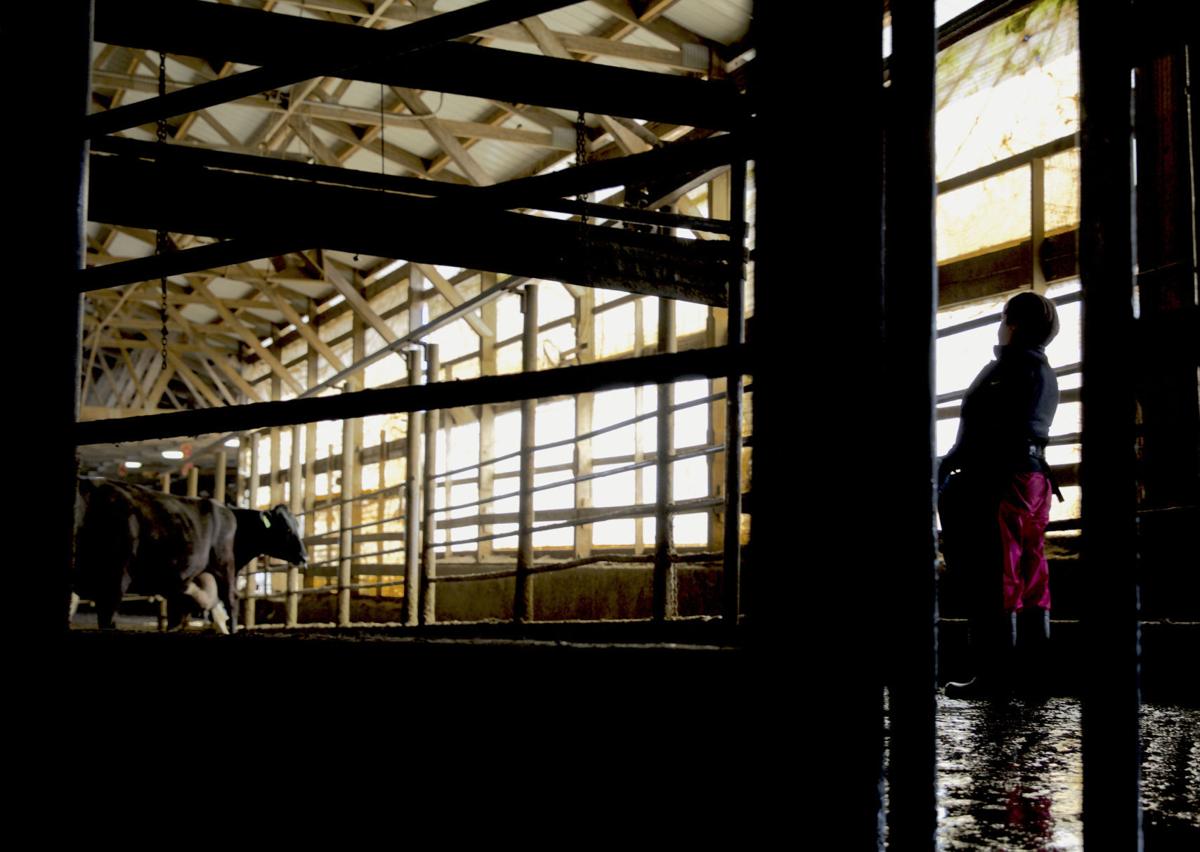 Removing half the estimated 76,968 U.S. immigrant dairy workers would cause a 24.2 billion pound decline in milk production, increasing retail milk prices by nearly one-third, reducing U.S. economic output by $16 billion nationwide, and causing losses of up to 65,620 jobs in supporting sectors, according to a study produced by researchers at Texas A& M University and funded by the National Milk Producers Federation.
Removing half the estimated 76,968 U.S. immigrant dairy workers would cause a 24.2 billion pound decline in milk production, increasing retail milk prices by nearly one-third, reducing U.S. economic output by $16 billion nationwide, and causing losses of up to 65,620 jobs in supporting sectors, according to a study produced by researchers at Texas A& M University and funded by the National Milk Producers Federation.
At the store, a gallon of milk averages about $1.58-$2.50 in the Midwest, and around $2.68 nationally as of the week of March 31, according to the USDA’s Dairy Market News Branch.
People who may have conservative politics on immigration still depend on immigrants who are willing to work for the wages that farmers can afford to pay, to sustain low prices, said James Wolfinger, a DePaul University history professor specializing in issues of race, politics, and labor.
“They want the wall built, but at the same time they want people who can get across the wall to come work at the ranch,” Wolfinger said.
Meanwhile, fear of attention from immigration enforcement prevents farm workers living in the country illegally from organizing for better wages and a fuller range of benefits, Fox said, and false perceptions that those workers do not have the right to report unfair or unsafe labor conditions abound.
“There are workers who feel that, because of their status, they could get targeted … if they make any kind of a fuss,” Fox said. “It takes an incredible amount of rights education and building trust.”
In her region, Fox said that fear has been exacerbated by the recent ICE arrests of several prominent farmworker rights activists living in the country illegally, including Enrique “Kike” Balcazar, 24, Zully Palacios, 23, and José Coyote Pérez, none of whom had criminal records, according to local media reports, and Fox said she thinks all three arrests were targeted.
Salvador, a Mexican-born father of three U.S citizen children who prefers not to give his last name because of his immigration status, defies his fear daily by driving 35 minutes each way to his job at Alan’s farm, five days a week.
“We need to work to feed our families. I have no other option,” he said.
Although Salvador owns a small house in Freeport and supports his family with his wages, he said his American Dream is yet to be accomplished.
“I will keep working as long as God permits, and as long as my boss keeps giving me work,” he said.
Source: The Southern Illinoisan









